In SEO, keywords are fundamentally important to effectively drive results for your business regardless you’re in business SEO, affiliate SEO, or just blogging for fun.
Therefore, the old question in SEO how many keywords per page has been asked many times, so here I am to give you the proper answer as well as answer your other related questions to help you with your SEO journey.
Let’s get nerding!
How Many SEO Keywords Per Page?
In SEO, you should be targeting only one primary keyword per page and additionally, you should try to optimize the page for 2-20 secondary keywords.
The primary keyword is the main version of the keyword you want to target. This keyword is the main topic you will want to write about.
And secondary keywords also called LSI keywords are keywords that are semantically very relevant to the primary keyword/topic and are closely associated together. These keywords help you to provide more details, including the right information for your users, and help search engines like Google to index your content properly.
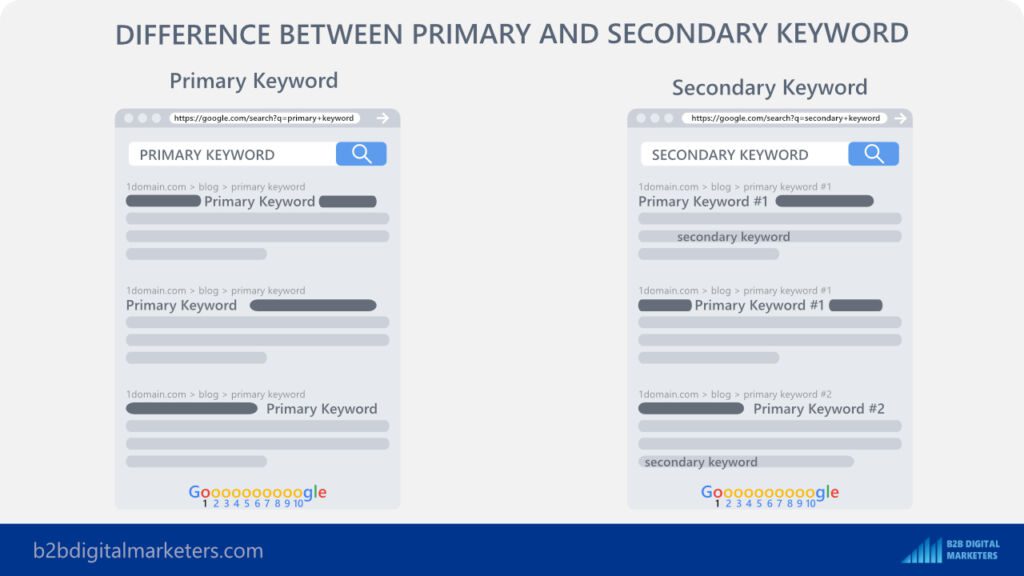
For example, if I would be talking about “on-page SEO” as my primary keyword or main topic, then some of the secondary keywords that are closely related to this primary keyword would be “title tag, meta description, keywords, internal links,” etc.
To identify if the keyword is primary or secondary check out my guide on keyword analysis as well as keyword mapping.
It’s important to think about keywords as topics and every piece of content should be focusing on only one topic at a time.
Of course, naturally, you might include way more SEO keywords in your piece of content. However, you should be focusing on targeting only one primary keyword per page.
And the reasons why are because:
- Easy to Target Search intent: Modern search engines are about answering user questions as fast as possible and search intent means the reason behind the user’s keyword or what information they want to receive. So, by targeting one primary keyword it’s easier to meet the user’s search intent.
- Avoid Keyword Cannibalization: With targeting only one primary keyword per page it’s easier to stay organized on what SEO keywords you have and will target and avoid keyword cannibalization.
- Easier to Produce High-Quality Content: Just like when writing a research or a school paper, you are only focusing on one main topic or one question as more than that would make it extremely difficult to provide the right information, and answers to questions and keep it organized.
- Improve Site Architecture: Your site architecture should be planned together with keyword research as one page should target one keyword which should reflect in SEO URLs.
- Optimize for Semantic SEO: Semantic SEO is an essential part of effectively ranking in Google, thus, by targeting only one primary keyword you will be able to optimize for Semantic SEO.
For example, if you look at this page, you can see, that the primary keyword the page is optimized for is “inventory optimization”.
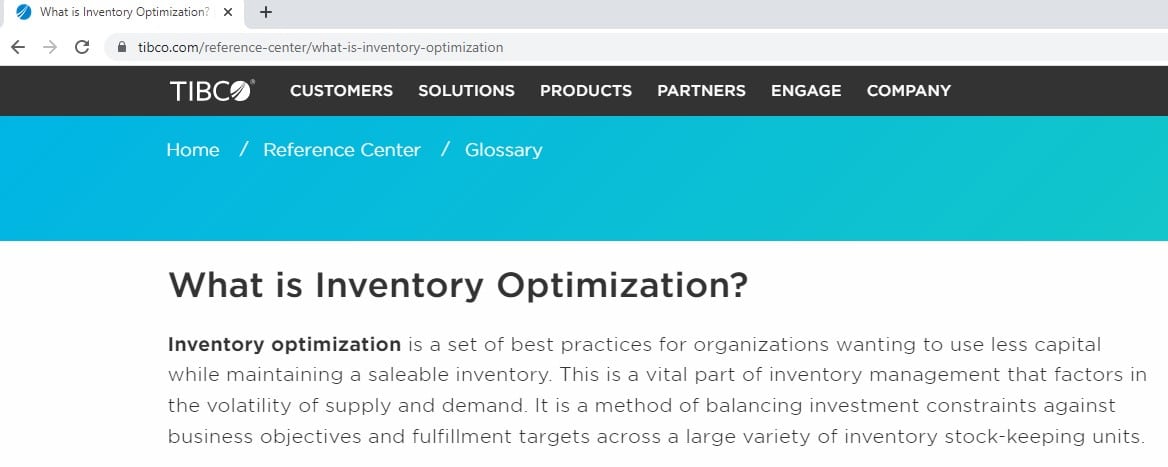
And some of the secondary keywords included on this page are “forecasting demand, inventory policy, product life cycle, inventory management” as these secondary keywords are super relevant to the main topic.
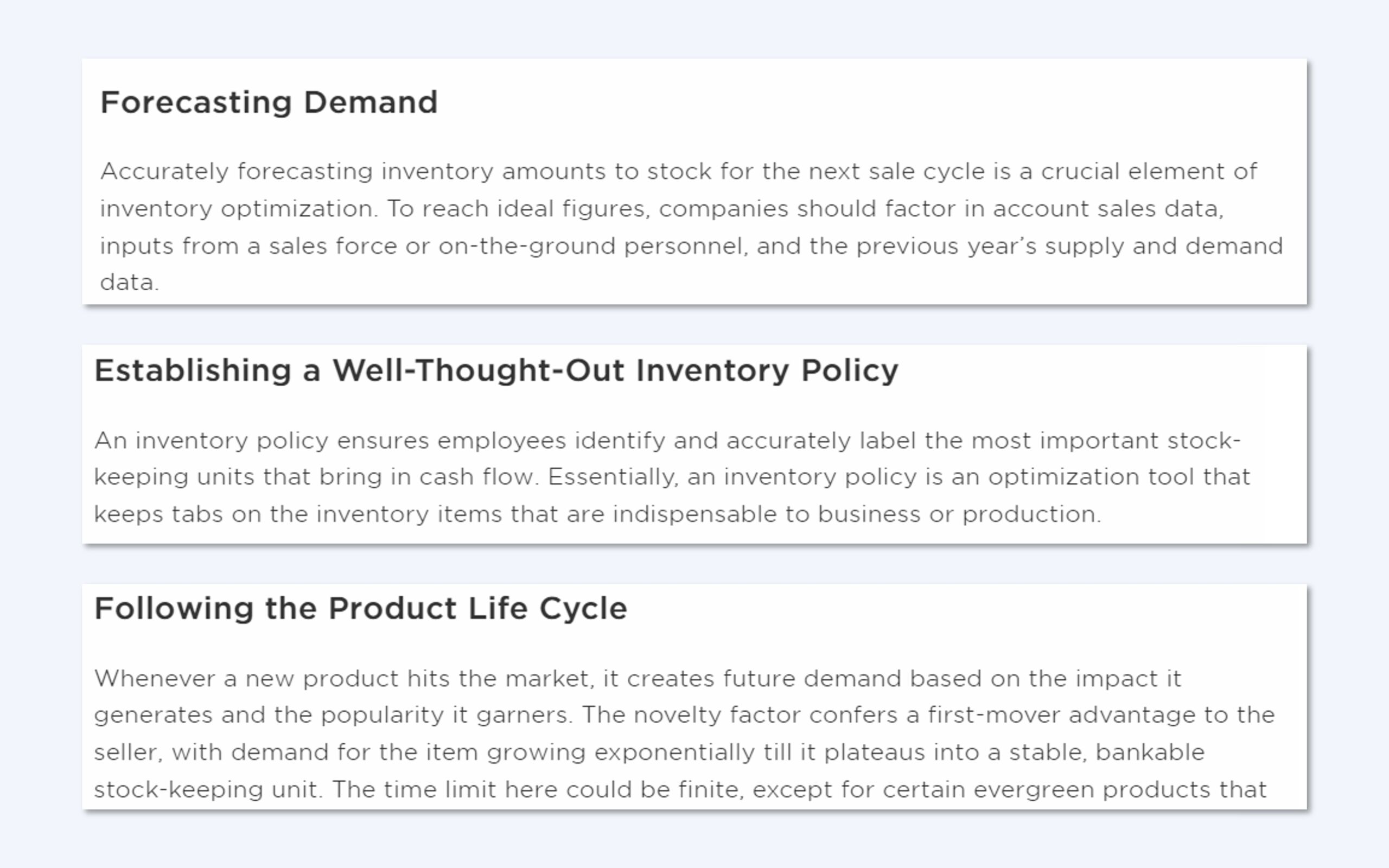
How Many Keywords to Use in a Blog?
You should be using only one primary keyword and up to 20 secondary or LSI keywords per single blog post.
For example, if you look at any of my articles such as on Press Release SEO you can see that I am targeting only one primary keyword per article.
And you can clearly see that as I include the primary keyword in my URL, headline, and introduction as well as in other places which are important on-page SEO factors.
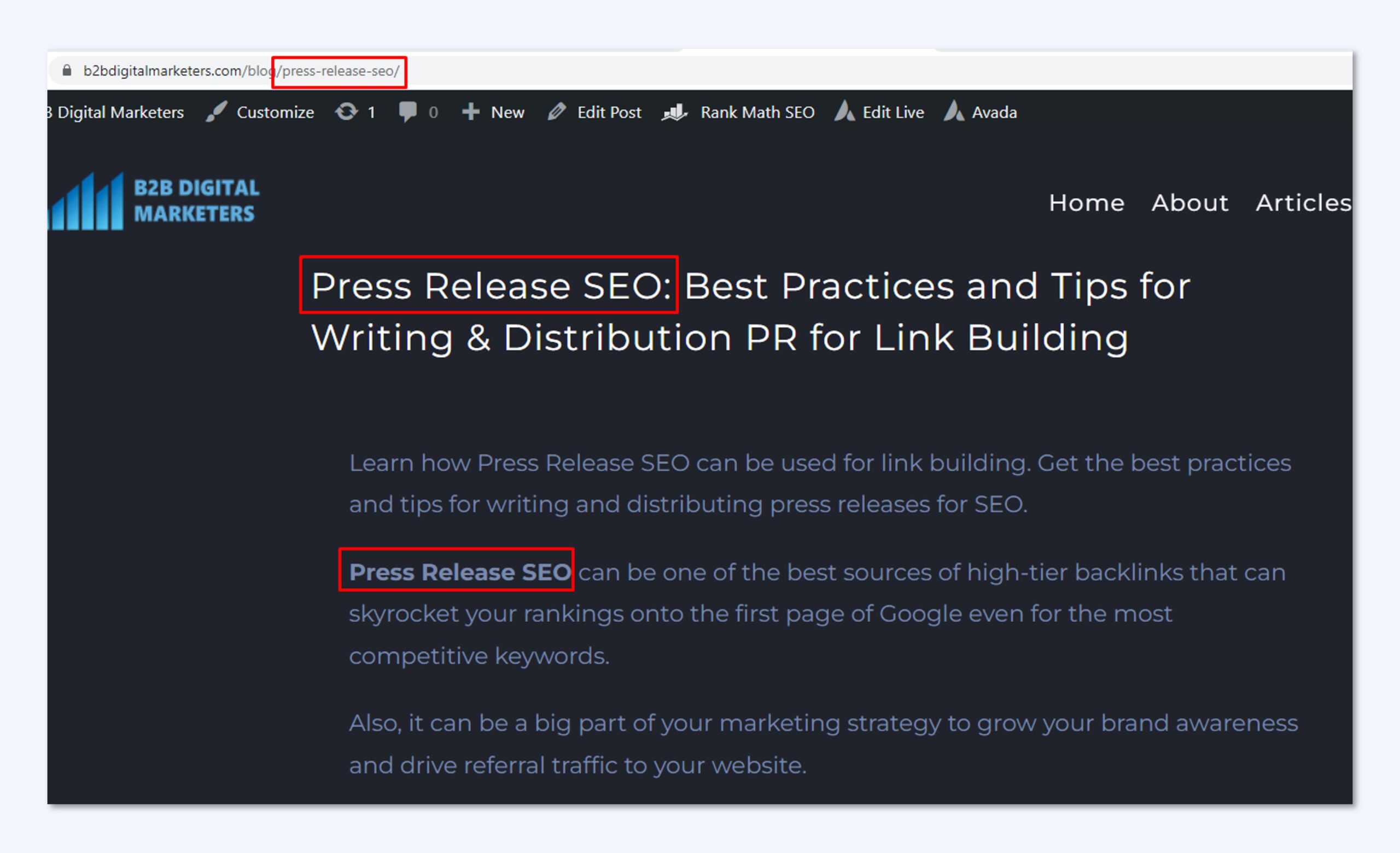
However, if you are asking how many keywords you should target with your entire blog then the answer is as many as you can as long as the keywords are relevant to your niche or industry you are targeting.
For example, if you are in a gardening niche, then you will want to target all the SEO keywords related to gardening, planting, growing plants, etc. but obviously, you would not target keywords related to SEO, finance, construction, and other non-related niches.
Your goal should be to target at least 3 primary keywords per week IF you have the resources. For example, I only target one primary keyword per week as do not have the resources because I write all the articles myself and create all the graphics.
Therefore, I produce only 1 article per week and occasionally I manage two articles per week, but that’s very rare.
Remember quality always comes first. But what you can do, is to first target low competition keywords with low word count so you can produce more articles per week and still meet the search intent and create high-quality SEO content.
How Many Keywords to target on the Homepage?
You should target only one primary keyword and up to 20 secondary keywords on your homepage just like with the rest of the pages.
However, what’s important is which keyword you should target with your homepage.
The reason why is that your homepage is the most authoritative page on your website. Therefore, you should target your most important keyword on your homepage to drive relevant and organic traffic.
Now which keyword is the most important for your website really depends on the niche you are in as well as your business model.
For example, Salesforce is selling CRM software. Therefore, the keyword “CRM software” is the most important keyword and they are targeting it on their homepage.
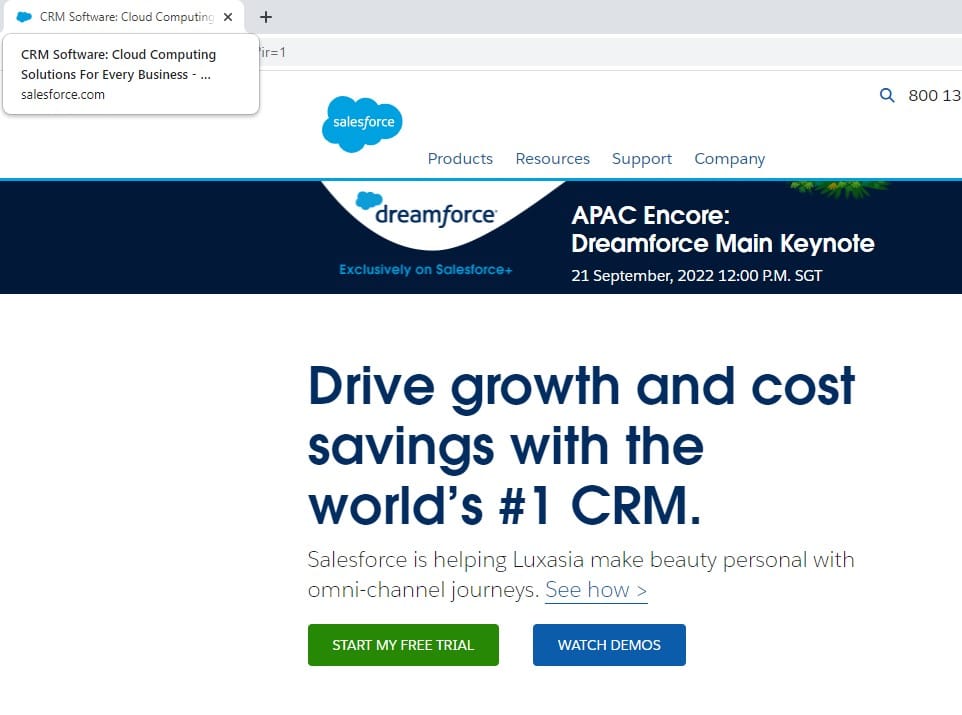
For Search Engine Journal it is SEO and everything around search engines so they target the keyword “SEO” with their homepage.

For the affiliate site top10vpn.com it’s the keyword “best vpn” and its variables.

However, most companies do not use their homepage authority to target their most important primary keyword, wasting this opportunity.
Therefore, regardless you are selling products, services, doing affiliate, or any other business model, you should be utilizing your homepage to target the most important keyword.
Should I Use the Same Keywords on Every Page?
Absolutely not! Every page should be unique, with unique information and you should only target once each keyword to avoid keyword cannibalization. But in some cases, you can target the same keyword with 2 or 3 different pages to meet different search intent and ranks for the keyword.
Let me explain.
In some cases, one SEO keyword can rank for multiple search intents such as informational, commercial, and even transactional because it can have multiple meanings, or users require different information as they are in different stages of the buyer journey.
Therefore, to target the keyword you might need to create different types of pages such as product pages, informational pages, and commercial pages and all of them would be targeting the same keyword.
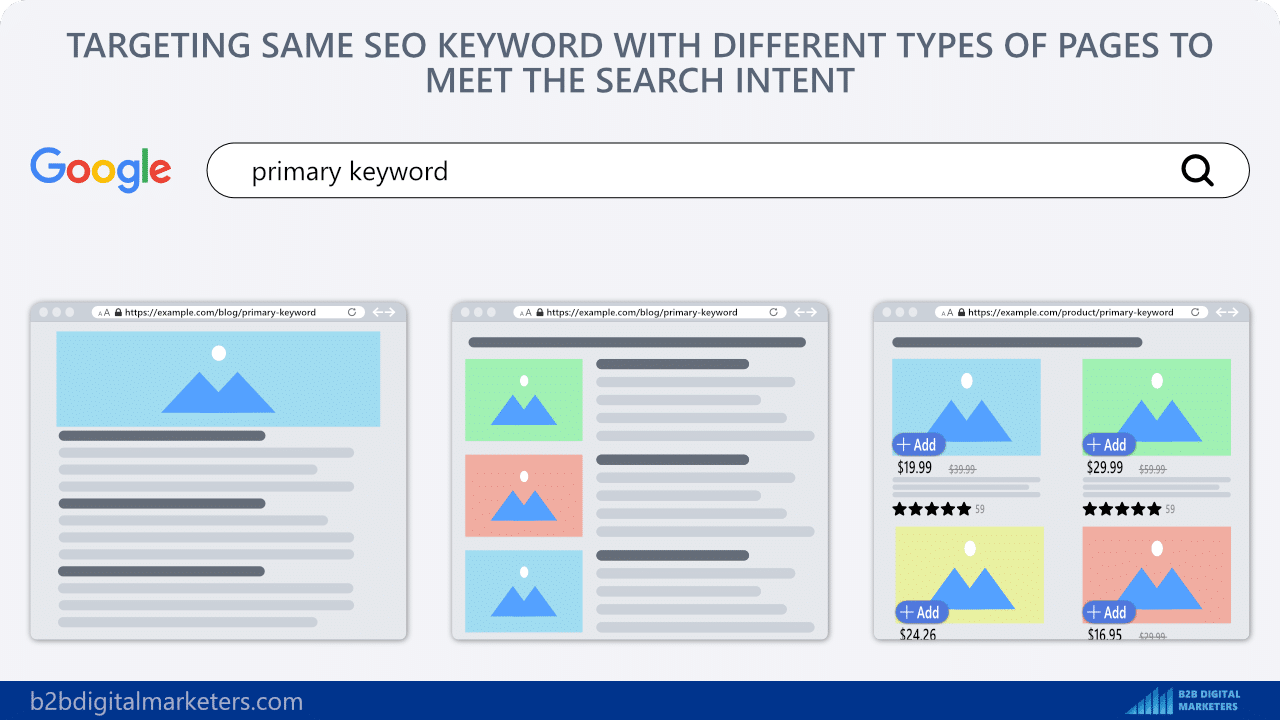
Or you will need to target multiple semantically relevant keywords so you can rank for the one primary keyword.
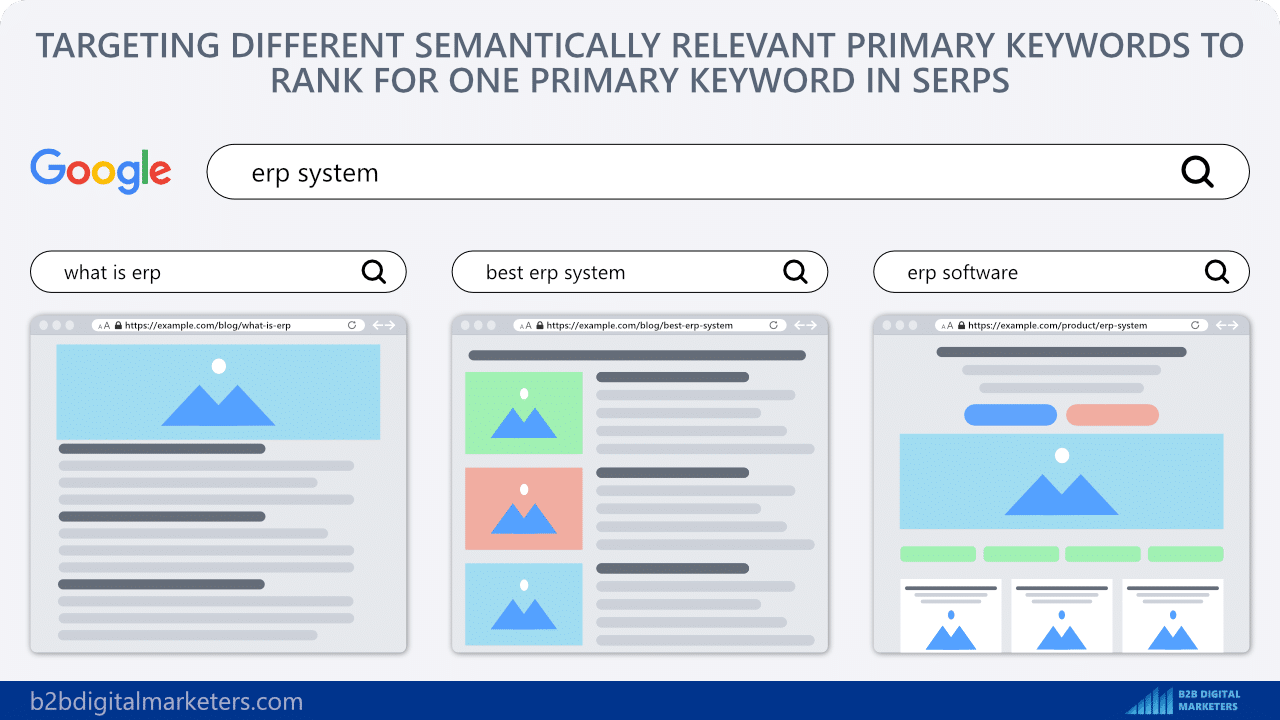
A great example is the keyword “erp system” where different pages rank with multiple search intents. You can see informational pages, commercial pages, and even transactional pages.
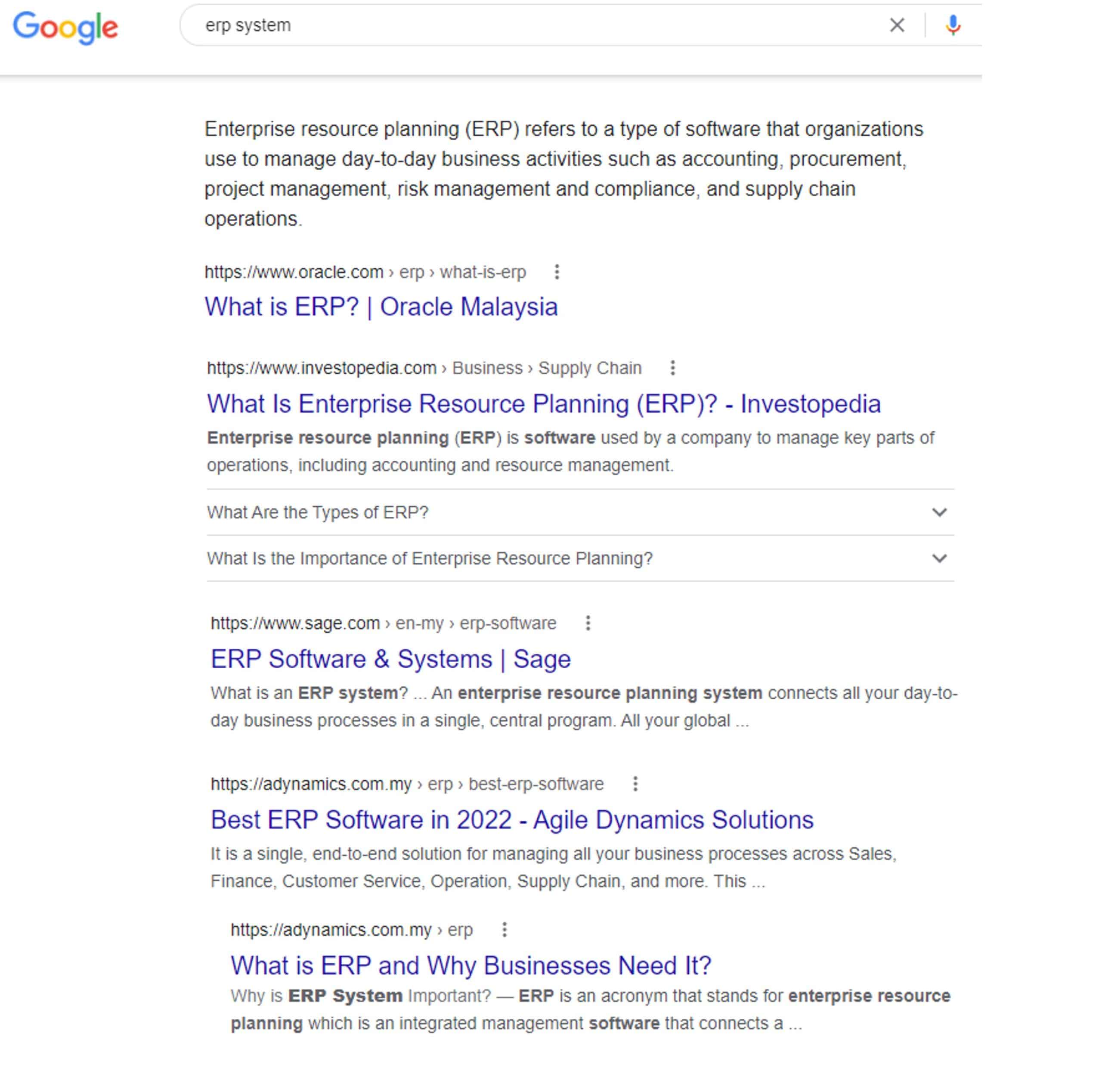
This usually happens with broader keywords such as head keywords, body keywords, or seed keywords as they can have multiple meanings or users require different types of information as I said.
However, in most cases, you will only target a keyword once with one page because the keyword has only one search intent.
How Many Keywords are Too Many for SEO?
There is no one precise number that can indicate you are having too many SEO keywords on your page and anything below is fine. It all comes down to common sense and how you are using the keyword within your content. It also depends on the word count the content has.
For example, if you are having 10,000 word article then including the primary keyword 20-30 times is all right, but having 1,000 word article, then mentioning the primary keyword 20-30 times is excessive.
Of course, you want to include your primary keyword in a natural way as many times as you can without scarifying the content quality and avoid keyword stuffing.
From my experience, in most cases, content writers can naturally increase the keyword density by slightly optimizing articles which in some cases can add more clarity to the article, improve the quality and help search engines to better understand your content.
Keyword density is not a ranking factor. Therefore, adding your primary keyword as many times as you can will not improve your ranking, is quite the opposite. Keyword stuffing is against Google quality guidelines and it can cause your page to be penalized or removed from SERPs.
However, on the other side, you should mention your primary keyword more than just once as Google is still looking at the keywords to better understand your page.
As said by John Mueller:
If there’s something you want to rank for, I would still mention that on a page.
I wouldn’t go overboard with the number of mentions. I wouldn’t go overboard with all of the synonyms and different ways of writing it.”
With that, you can see adding keywords to your content is still important, so Google can better understand your content and rank it accordingly.
Because John Mueller also said:
“So… I would recommend that if there’s something that you want to tell us that your page is about, to make that as visible as possible.”
That’s why if you are targeting certain keywords, then adding keywords in certain aspects of your page where Google is looking for them will help you to improve your ranking and it will make it easier for Google to rank your content.
Therefore, I recommend you check out my guide on where and how to add keywords in WordPress.
In terms of the keyword density or how many keywords are too many in SEO and to be safe, I would recommend keyword density around 0.25%-0.5% if you are below just to sprinkle the keyword around.
Or if your keyword density is higher than 1% and you were writing naturally, then keep it.
All this depends on the topic you write about. Sometimes achieving a keyword density of 0.1% is very hard and sometimes 3% keyword density happens in natural writing.
As you can see my keyword density range from very small all the way to high.
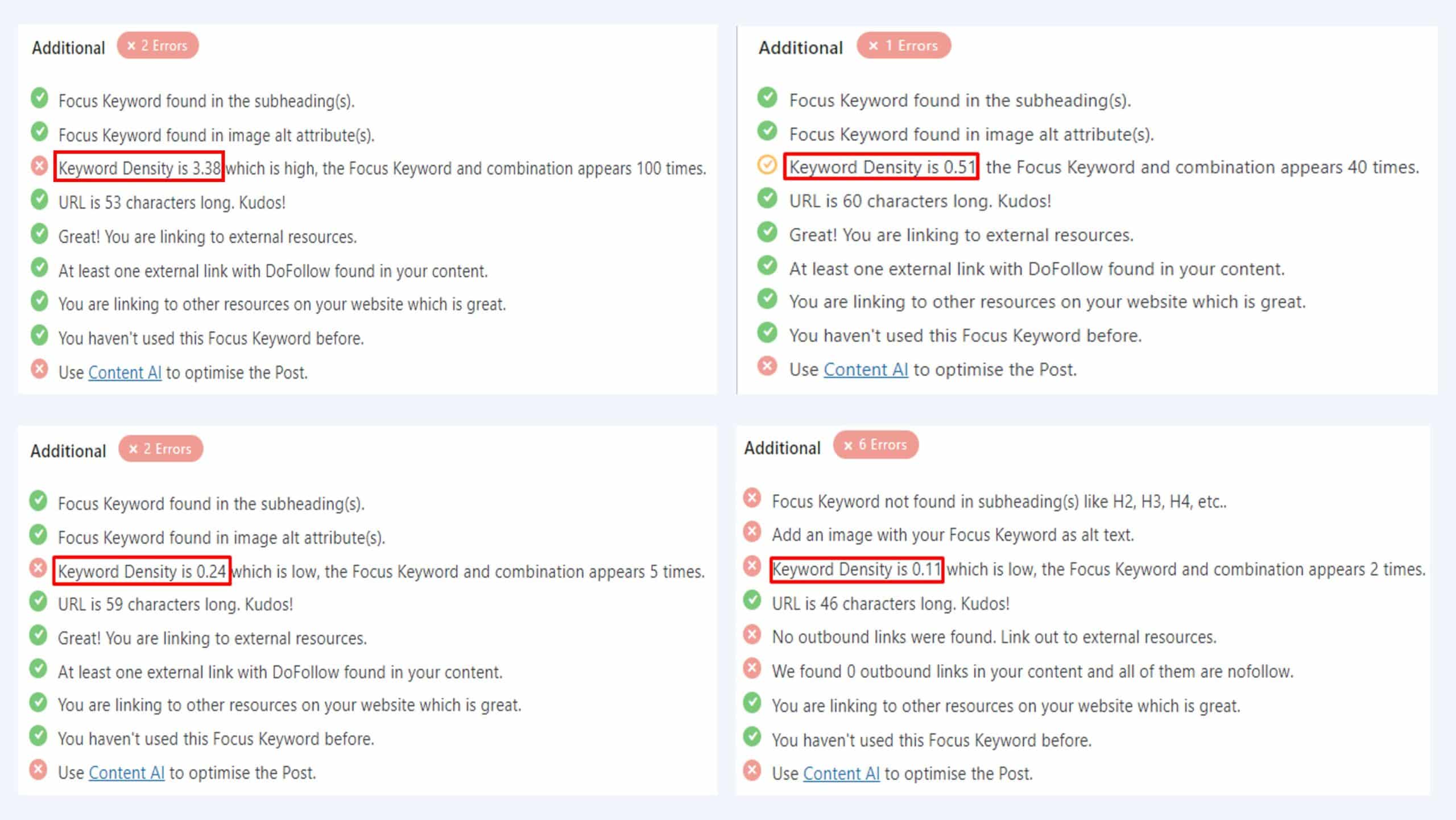
How Many Keywords Can You Rank for With One Page?
According to Ahrefs, you can rank for hundreds or even thousands of keywords with one page.
However, that was a while ago and new research shows that the keyword size of SEO tools like Ahrefs, SEMrush, Moz, and others are smaller. GSC had over 36% more keywords than the other sources combined.
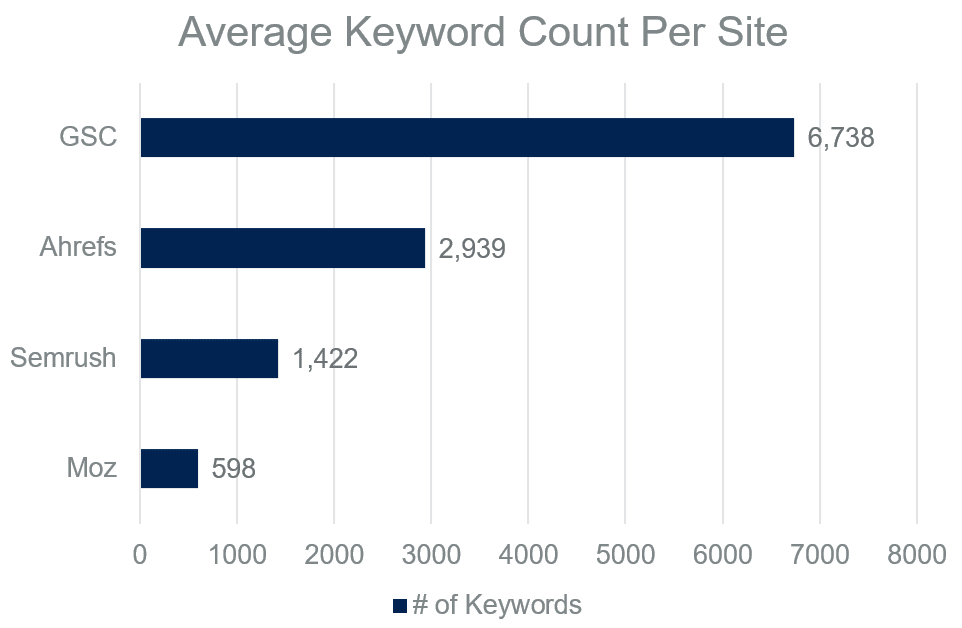
So, I have looked into my and my client’s accounts, collected over 100 ranking pages with an average ranking position of 2 and checked how many keywords you can rank for using Querying GSC from the API to get as much data as possible.
And the results were, you can rank for over 2,500+ keywords with one page if you are ranking in the top position and as your page average ranking position declines so do your ranking keywords too.
Needless to say, you can easily rank for hundreds or even thousands of keywords, but if you are not ranking on the #1 page of Google SERPs it has no value as the only keywords that counts are those that drive traffic and for that, you have to rank in top positions.
How Many Types of Keywords in SEO?
In SEO there are ten most important types of keywords that you should know when you are doing keyword research, SEO competitor analysis, content gap analysis, or SEO audit as it will help you to formulate your SEO strategy and get important insights.
With that, here are the six most important types of keywords you’ll need to know:
- Primary Keywords: These are the main keywords you want to target with your content. Consider these as the topics you want to write about.
- Secondary Keyword (LSI Keywords): These are keywords that are supplementary to your primary keyword. They help you get more context, provide more value to your content, help search engines to better understand your content, and more. These types of keywords may be supplementary in your article, but they can also be primary keywords as well that you can target with your other piece of content and then interconnect them with internal links.
- Seed Keywords: Seed keywords are short queries with one or two words with broad meanings. They are the general topics, that you can further develop with more subtopics or subcategories. Seed keywords are used during topic clusters. For E.g. “content marketing” is a seed keyword.
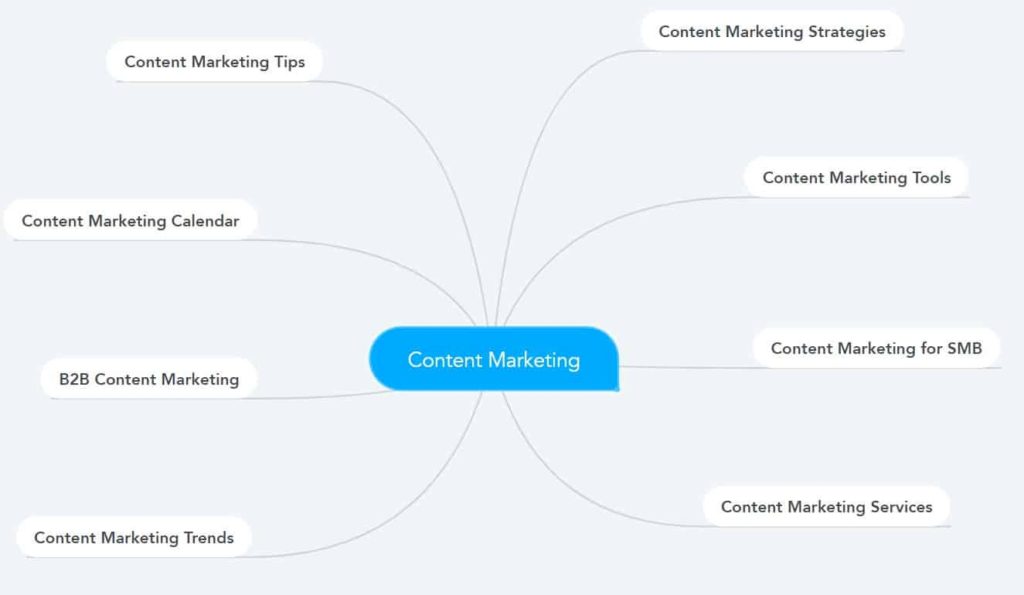
- Head Keywords: These are usually single-word keywords with very general meanings. They should have a high search volume and usually are very competitive. An example of the head term keyword is “whisky”.
- Body Keywords: These are 2-3 words phrases and are more specific than head keywords. They should have a decent amount of traffic and less competition. E.g. of the body keyword is “irish whisky”.
- Long-Tail Keywords: These are long 3+ word phrases and usually are very specific. They should have a lower search volume but should be easy to rank. Often these are recommended for low-authority websites. An example of the long-tail keyword is ”irish whisky cocktail”.
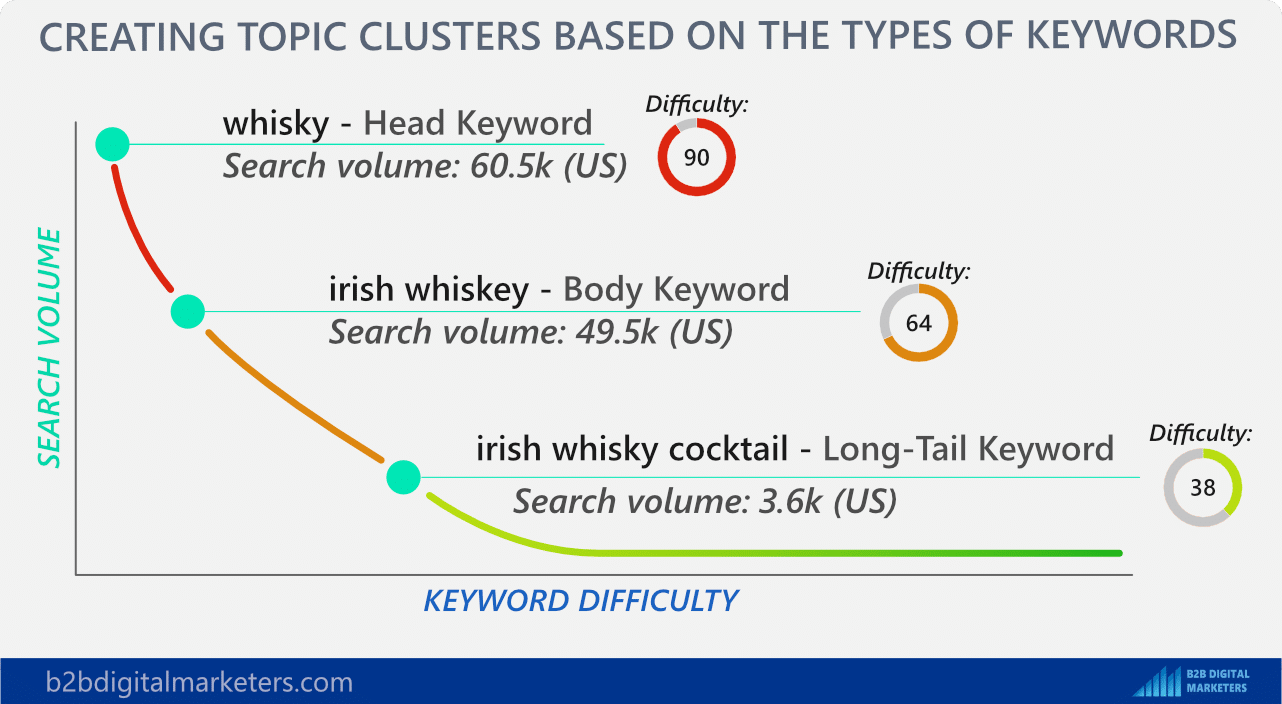
And here are four search intent types of keywords you’ll need to know:
- Informational keywords: This is when a searcher is looking for information. Often this could be relevant to your product or service. For example “how to do keyword research” if you are selling SEO products or “how to fix a computer” if you are selling computer components. These keywords have often very little value as the searcher is not searching to buy but learn.
- Commercial keywords: These keywords are often used when a searcher is looking for a specific product or service but needs to learn which one is the best. Often these keywords feature words like “best, top, review, comparison, or attribute + product name”. A few examples could be: “best keyword research tools”, “affordable electric cars “best camera below 1000”, and “tesla vs porsche”. These keywords are the golden ones.
- Transactional keywords: This is when a user is searching to make a purchase. They have enough information, they know what they want, and only what they need to find now is the best deal. For example, such keywords could be: “SE Ranking pricing”, “buy scented candles”, “second hand bmw for sales near me”, “pest control near me”, “gas station near me”, or “moving services pricing.
- Navigational keywords: This is when a searcher is looking for a specific brand. For example “Amazon”, “SE Ranking”, or “BMW”. These keywords can be extremely valuable for resellers but hard to rank.
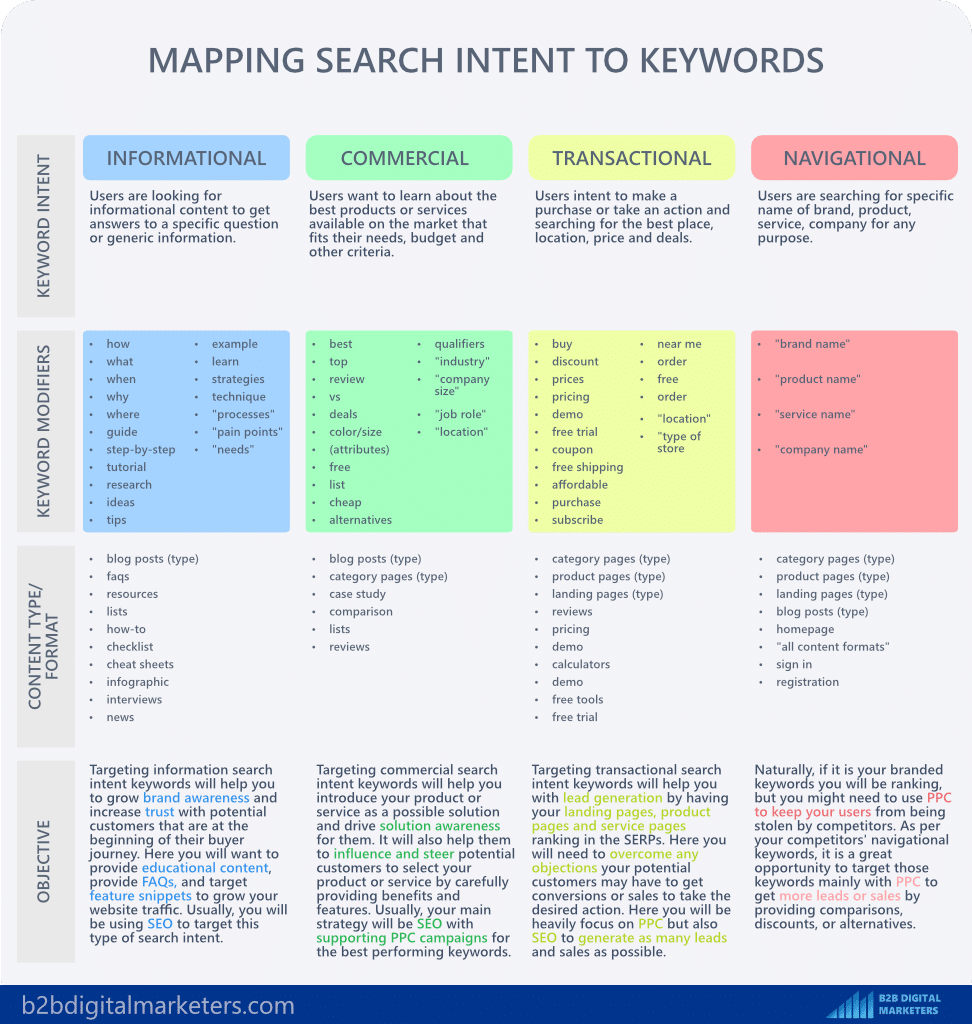
Understanding these types of keywords will help you create better content, improve your SEO strategy and outrank your competitors.
It’s important that you understand these as these types of keywords are commonly used during SEO processes.
Are 500 Words Enough for SEO?
Yes, 500 words can be enough for SEO if that’s all you need to provide within a piece of content to satisfy the user intent. Word count is not a ranking factor and therefore even 20 words can be enough for SEO if that’s all that you need.
A great example is glossaries where often the piece of content contains less than a few hundred words and in some cases less than 20 words such as this example.
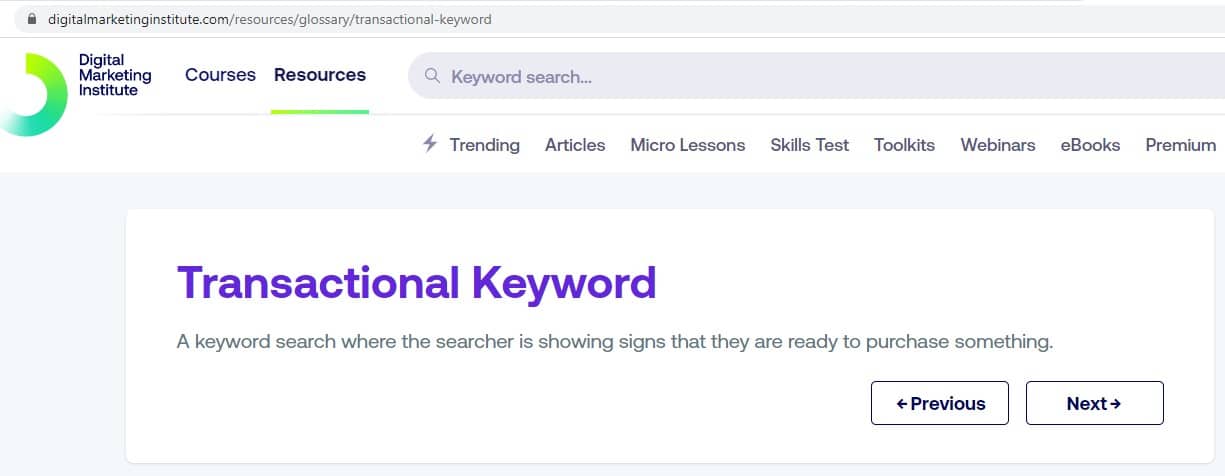
Remember, you should never focus on word count, your goal should be to provide as much value with the least number of words you can possibly can. You want to remove any fluff around and go straight to the point.
For every article I am writing, my goal is to write the least yet provide all the value I have.
So if you are not sure how many words should you aim for with your article, you can use tools like SE Ranking SERP Analyzer which gives you the word count for the top ranking pages and you can average it.
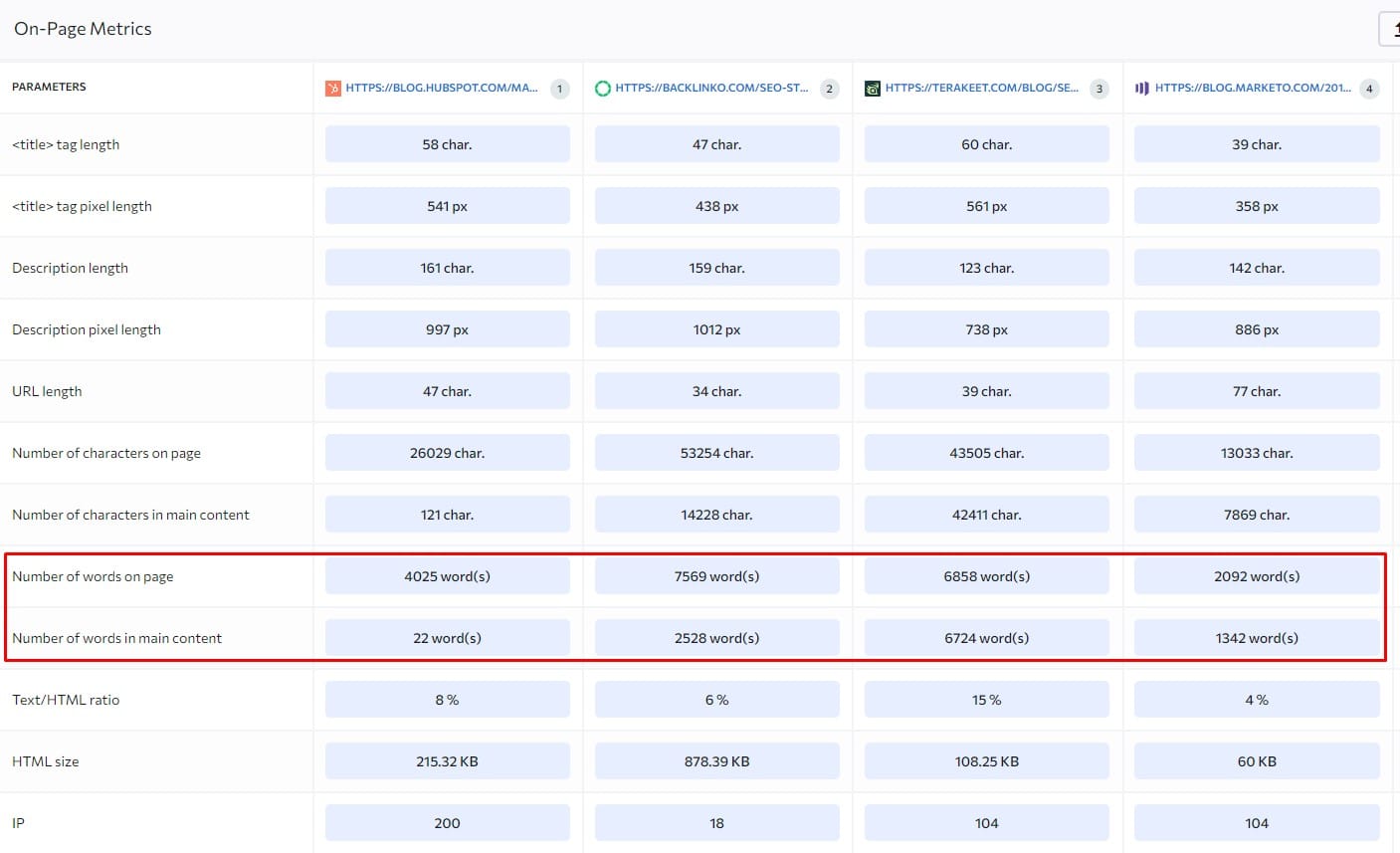
Final Advice in SEO How Many Keywords per Page
Remember, keywords are topics you want to write about. Therefore, you want to take one topic at a time and never mix two topics within one piece of content.
However, what sometimes can happen is that you will target keywords that are actually not primary keywords at all but more like secondary keywords and you will need to combine some of the pieces of content to create one single, stronger, and more valuable piece of content.
For example, in one article you are writing about “what is humidifier”, in the second article about “benefits of humidifier” and in the third article about “risks of humidifier”, often these micro contents can be combined into one better content and only target the keyword “humidifier”.
Or for example, write one comprehensive piece of content targeting the keyword “humidifier” and in each section, you can link to the other article where you provide more information. For example, in the benefits section, you mention in short, the top benefits of the humidifier and then link to your other article where you give more benefits and more details about it.
This is one way how you can create topic clusters and create strong topical relevancy and authority for your website.
I hope you have enjoyed my article, please let me know on my YouTube channel your thoughts, CAU!
Related Articles:
- How To Check Website Position in Google
- 9 Best Ways How to Find All Pages on a Website
- How to Find Backlinks to a Page and Website
- How Often Does Google Update Search Results?
- SEO for Landscaping: Ultimate & Easy Guide for Non-SEOs
Also, check out our SEO hub page to find all our SEO resources.
Disclaimer
This article was created by Eduard Dziak and may contain affiliate links. The following were used to optimize the article for the best user and search engine experience include:
- SE Ranking for keyword research and on-page SEO optimization
- Surfer SEO for SEO-friendly content creation for users and search engines.
- Jasper AI for grammar correction and information enhancement.
The article is based on the author’s own experience and knowledge, drawn from both their own work and that of their clients, to provide the latest, proven methods.
Support the B2BDigitalMarketers
Hey, Eduard here.
As a solo blogger with limited resources, I need your support to keep creating in-depth SEO content like this. Please consider joining my Patreon community to help this site grow.
Your pledge – no matter how small – will enable me to dedicate more time to sharing actionable tips and strategies. With your help, I can take this project to the next level and really make a difference for other SEOs and marketers.
I would sincerely appreciate you joining me on this journey as a founding patron. Together, we can build an amazing resource hub. Hope to see you on the inside – thanks for your trust and support!








